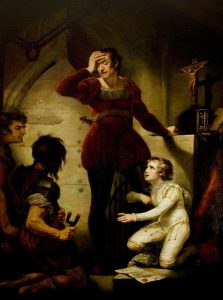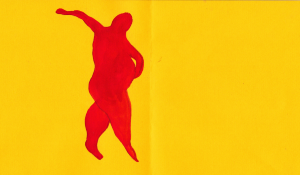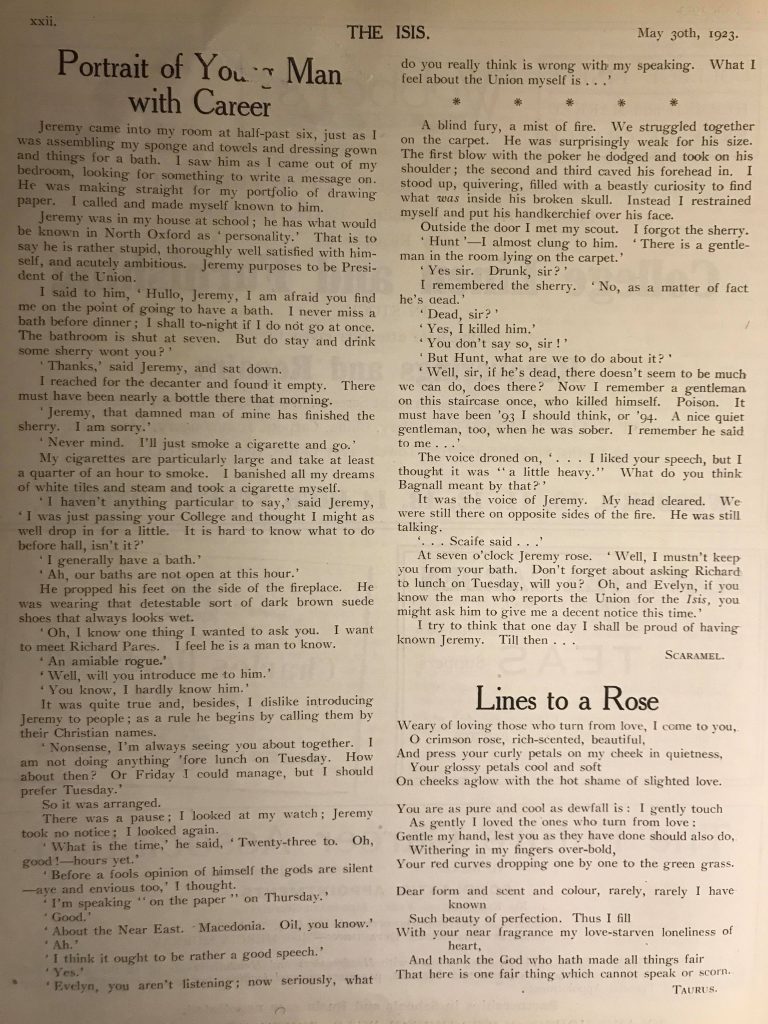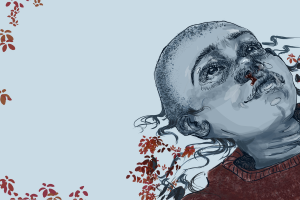
Old English, Old Oxford
by Louis Davidson | February 11, 2018
Two months ago, I found myself at an English formal with the rest of the English freshers at my college, and all our tutors. I imagine the nerves—as well as the prospect of free wine—must have got to me, so I ended up fairly tipsy by about an hour into the evening. I was sat three seats down from my Old English teacher. I felt that things were loosening up amongst the members of the faculty, so I asked him—”Why do we study Old English? Why are we the only ones who have to?”
He paused for a few seconds, and looked at me as if I had asked him why the sun is hot.
“Because, it’s English.” He said.
He looked offended, and I was sober enough to recognise a faux-pas when I saw one. So I didn’t mention it again, and finished my glass of wine.
I was not surprised by matriculation, or by formal hall, or by Latin mottos and college crests on drain pipes. I don’t look at these things with the same frustration some do, those who find that a university so old and so formed by its past, mediaeval or otherwise, constricting. I see these things, and the myriad of other strange traditions which have emerged over the last millennium, as part and parcel of this university. Oxford is an old university, the oldest in the anglophone world and the second oldest in Europe that still operates. We feel this, even if we don’t know it. The particular condition of the Oxford student is to find yourself in a place which feels ancient. For some that comes with pride, stability, or plain affection. For others it is strange, isolating, and frustrating. I had always thought I belonged to the former group, the ones who take pleasure in the charm of anachronism. But speaking to my Old English teacher set off a new line of thought for me. I thought about the course I had just started, a relatively new one at that. The Oxford English course has only existed since 1894, and up until the 1960s it required a Latin examination for entrance. While we no longer sit a Latin exam to come here to read English, Old English is clearly a leftover from those days—it feels very much like a stab at cementing some kind of authority through age, given that many of the books we study are younger than the course itself (and indeed, younger than some of our tutors), adding a year of studying the Anglo-Saxons to make English less like a ‘modern great’ and more like the ‘greats’ themselves. While we spend a term reading Victorian literature, we spend a year reading Anglo-Saxon. I don’t want to dwell on a personal distaste for the length of the Old English course, but I feel it makes clear the degree to which Oxford’s concern for itself and for its past can endanger our learning. In attempting to bring a new course to the level of the older ones, it is my opinion that the students suffer. Instead of honing (as an English degree should) our ability to engage with some of the greatest works written in their historical contexts, and to understand the temperament of one of the world’s great and most important languages, we are confined to a smattering of poems, none of which have anything near the cultural relevance of even the Latin and Greek poems. In short, at least people other than students know about the Iliad — have you ever read The Dream of the Rood? What happens in Beowulf? Not once has my reading of these texts influenced my reading of the other sides of the course.
So now, as I start my second term at Oxford, I wonder whether the anachronisms I found charming are hiding something more sinister. Oxford isn’t completely responsible for this. It is in part something that pervades Britain as it stands today. When I see that I spend so much time versing myself in the Old English language as, essentially, an attempt to bolster the English degree with a degree of ancientness which it does not have, all I can think of is everything else I could be learning. Read Beowulf, yes, but is it really more important than everything else we could be doing? How many people at this university, I wonder, have felt there was much more to intellectual life than grammar tables and compound nouns? When we have what we have at our disposal; vast libraries, able students, world-class academics and teachers, stunning facilities, and a thousand years of history at our backs, has Oxford not earned the right to move away from tradition? Young people in this country become more and more disillusioned, especially those who consider themselves liberal and open to new ideas. Oxford’s name is international—we are a truly global university—so why should we not show the world stage that British people do not cling onto their past, and they can move into the future? While it may be a break with the traditions that in a sense define what “Oxford” is, the University is in danger of falling into a paralysis from which it cannot escape. If the content of the courses remains traditional forever, this will eventually eclipse the University’s academic reputation, and we will enter a decline.
I like it here. I enjoy Oxford, and many people do. But the country is changing, and ‘tradition’ is a loaded word now. Whether you agree with “Fundamental British Values” or not, there can be no denying that the country stands divided over its relationship with its own past. Some look back with longing to the days before the EU, when Britain was Great and sovereign, and some look back on that as a period of rampant and naïve Imperialism in the face of our own decline. To speak of the value of tradition now puts you on one side of a political spectrum. As it does, on a smaller level, in Oxford. There are those who look longingly back to the days of Brideshead Revisited, a dreamlike Oxford populated by aristocrats, philosophers and sherry-drinking croquet players. And there are those who know that this world never existed in the first place. I think we can all appreciate the draw of the way things were, but we have a responsibility to the students who follow us to make a contribution to bring the University into the present. Oxford has moved forward—never, I think, in the wrong direction.
Artwork by Alex Christian




